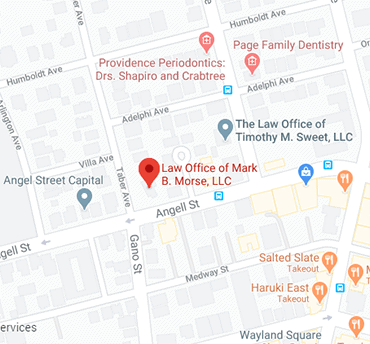What Exactly Is A Medical Malpractice Case?
A medical malpractice claim is essentially the same sort of claim you would have against persons who are negligent; that is, that they owed you a duty, that they had some responsibility to you, and that they failed in the performance of their duty by not following the appropriate standard of care. These cases are only different when medical professionals are involved because you and I, as laypersons, are unable to describe what the standard of care is or is not. So, in a medical malpractice claim, in order to bring a claim against healthcare professionals, you will need evidence that the healthcare professional did not perform in conformity with the appropriate standard of care, that they did something outside of the type of care that would be expected from another medical professional in that particular field.
Who Can Be Held Liable In A Medical Malpractice Claim?
Generally speaking, you want to bring a claim against those who are responsible for your healthcare. That could include the hospital or other facility where you had a procedure performed, or it could include the actual physician who performed the procedure. Oftentimes, the harm that was caused to you was caused by one of the ancillary medical professionals, such as the anesthesiologist, the physician assistant, the surgical nursing team, or any other number of professionals who may have been involved in your healthcare.
If staff members failed to appropriately prepare you for treatment, you’ll want to name the facility or the physician’s group that employees the staff members, as opposed to the physician and their practice. Whether you name the staff members themselves, you’ll usually want to name the hospital and/or the physician’s group that employed the staff members who were primarily responsible for your injury.
These are the types of suspects that you might consider when you file a malpractice case—those who are ancillary to your treatment, who have some responsibility, and who have not conducted themselves appropriately during the course of your treatment. In addition, there might be the physician, the physician’s group, and/or the hospital.
If The Consent Form I Signed Prior To A Procedure Is Considered Valid, Could I Still Recover Damages In A Medical Malpractice Claim Against The Physician Or Surgeon?
Medical malpractice cases often include a claim that you were insufficiently informed of the risks of the procedure that you undertook, meaning there was a lack of informed consent. That’s not, however, the only type of medical malpractice claim that can be brought.
Most medical consent forms specify certain risks that are attendant to the procedure that you are undertaking. Oftentimes, those risks will include some very serious ones such as a serious injury that could result from that procedure or even death. Unfortunately, in some instances, death or serious injury will occur even if the physician is not negligent. In other words, even if the physician acted appropriately with the appropriate standard of care, these things can just happen.
However, if something is listed as a risk and you are informed of that risk and then that risk does occur, it’s possible the risk occurred because the physician was negligent. Just because you were made aware that this risk could occur without negligence doesn’t preclude you from having a claim if the risk is due to negligence. The informed consent form that you signed does not in and of itself relieve the physician, members of the staff, or other medical professionals of their responsibility to you to perform that procedure without negligence. In short, if what occurred to you occurred as a result of negligence, you may still have a claim despite having signed that informed risk form.
How Long Do I Have To File A Medical Malpractice Claim After Being Injured Due To Negligence In Rhode Island?
Just as with a general personal injury claim, the statute of limitations in Rhode Island is three years to file a medical malpractice claim. And just as the general statute of limitation varies from state to state, so does the medical malpractice statute of limitations vary. If the medical malpractice claim involves a federal medical provider, such as the VA hospital or some other federally funded medical provider, the statute of limitations under the Federal Tort Claims Act is for two years.
There is something that is more significant in a medical malpractice claim than it is in most other claims, and that is what we call the discovery rule. The reason it’s more significant in a medical malpractice claim is because it’s often more difficult to discover the results of malpractice until after a period of time has passed. For example, if a medical professional has negligently left something inside of your body that does not belong there and that causes you injury, you may not be aware of their negligence for a good period of time. It’s not uncommon for someone to have an X-ray or some other imaging and then, lo and behold, discover there is something inside their body that was left there and that has been causing them some form of harm.
If it’s something that you could not recently have been aware of, the discovery rule would then provide you more time in which to bring your suit. You have such time as you discover it or reasonably should have discovered it before you need to bring your claim. Nevertheless, the discovery rule is very strictly construed, so you have to be careful and should consult with an attorney.
For more information on Medical Malpractice in Rhode Island, an initial consultation is your next best step. Get the information and legal answers you are seeking by calling (401) 831-0555 today.

Call Now To See How We Can Help!
(401) 831-0555

